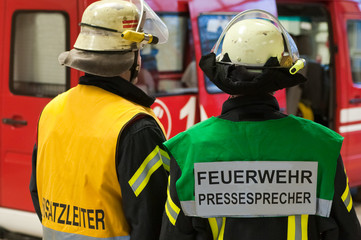Leading – differences between bcm and administrative crisis management
Business continuity management can also mean "emergency and crisis management". We also find this term in the administrative sector, as in the work of civil protection. But is leadership in the event of crises really the same? This short article is intended to highlight individual differences and similarities between these two emergency and crisis management approaches so that a distinction can be made and differentiation simplified. Causes of crises The causes of crises or disasters in the field of civil protection are almost exclusively external. This means, for example, natural disasters, terrorist attacks or a technical/human failure, which leads to high risks. In the case of companies, there are two additional causes: inadequate attention to operational fluctuations up to the point of escalation and the occurrence of latent problems, which lead to high reputational damage. The crisis is therefore not only brought in from the outside, but may [...]







